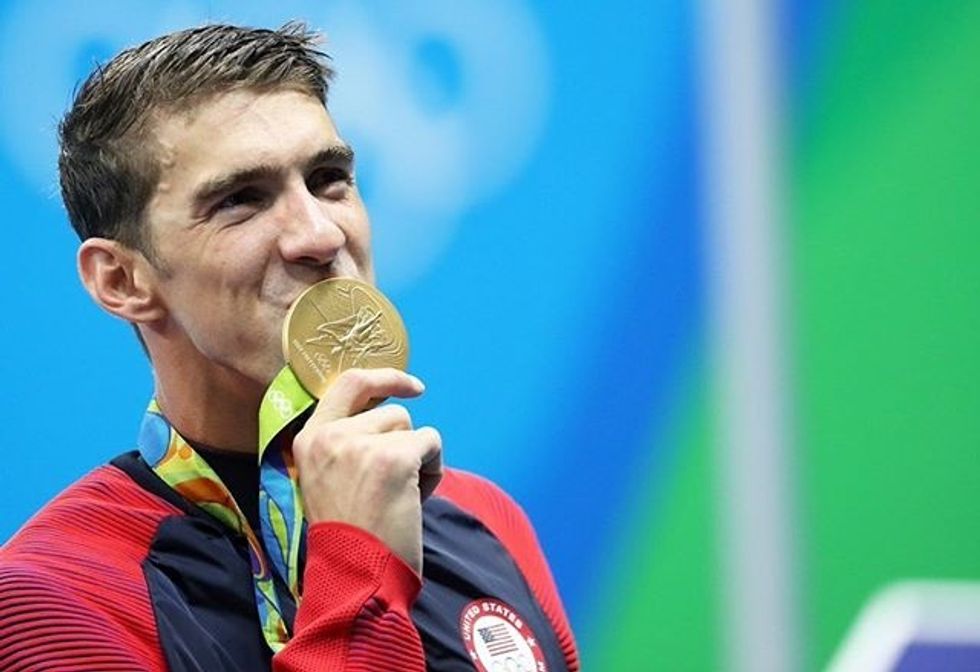I've been an athlete my entire life. I love movement and I've been jumping, kicking, swimming, dancing, throwing, you name it since I was in diapers. I'm also pretty competitive and probably went through a few sore loser phases. What can I say? I like to win, and losing can sometimes feel like I've failed. Especially, when your competitor is your best friend or someone that you worked all year long to defeat.
Accordingly, a lot of my early confidence came from sports, my athleticism, and passion for fitness. All the same, however, some of my anxiety also stemmed from working so hard to perfect all that I do. But champions are wrongfully encouraged to push through the pain and achieve. Think the opposite of "grow through what you go through" and more like "isolate and succeed."
Thankfully, Michael Phelps continues to remind us that we are not alone in feeling shitty. Even Olympians can hit rock bottom because mental illness doesn't pick and choose who it impacts – it affects us all.
Michael Phelps has recently shared that therapy saved his life. Although he was scared because he didn't want to be seen as weak, he now willingly admits that therapy truly changed his life for the better. Once he faced all the tough conversations, he immediately felt a weight lifted off of his shoulders. Yet, mental health is still a sensitive topic and the uncalled for the stigma against emotions doesn't help. Be that as it may, Phelps started to talk to his fellow athletes and he quickly realized that so many are struggling with varying mental health challenges. This was eye-opening.
As a result, in 2018, the Michael Phelps Foundation expanded its charitable efforts with emotional wellness lessons to the Boys & Girls Clubs and Special Olympic participants. Additionally, the foundation is currently developing "a global effort to advance mental health initiatives in partnership with several leading mental health organizations."
No matter if you are an athlete or not, we all experience fluctuating feelings, but some of us choose to stuff these emotions down, forget about them, or even isolate ourselves to wallow in them. However, avoiding these emotions, compartmentalizing, and brushing off the importance of emotion processing is dangerous for your health – plus, we all know all the feels will explode just when you don't want them to (ahem, like right before the most important competition of the year).
Therapy can be taboo, but it's time to normalize therapy, normalize medication, and normalize mental health. Say it with me, mental health is just as important as physical health. Even for all the athletes out there kicking their butts every day to be the best they can be at their sport.
I promise, it's okay to not be okay. Sometimes this can be really hard to accept, especially when you're a perfectionist like me who wants to do give 100% to everything I do. It can be even more difficult to admit to someone that you need help and you can't keep going on. This is where therapy comes in and boy is it a valuable, life-changing tool.
It's not weak to ask for help or check-in with somebody, rather this is where absolute strength originates. Being vulnerable and talking about your pain is freaking hard, but totally worth it. On the other hand, remaining hidden and silent will only make you hurt more, and you don't deserve that.
If you or someone you know are in a crisis, please call the National Alliance on Mental Illness' Hotline at 1-800-950-NAMI or text "NAMI" to 741741.












